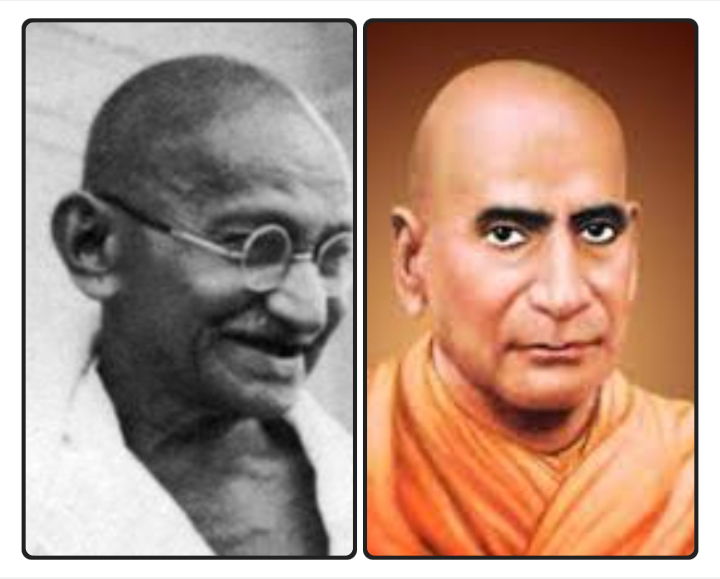The two Mahatamas standing on the opposite corners of political discourse.


Though Swami Shraddanand, came into the freedom movement at the insistence of Mahatama Gandhi, he later fell out with him on many issues. Swamiji was not satisfied with the tactics adopted by Gandhiji, he felt non violence was not really an effective way. The major difference between them was on two, that of Dalits and the other of Hindu-Muslim relations. He was completely against untouchability and wanted to make it a core issue of the Congress manifesto. He felt that mere political freedom would have no meanings if people were discriminated on the basis of caste. He wanted the Dalits to be accepted as equal partners, allowed entry into temples, be given education in schools. Swamiji exposed the nefarious activities of the Christian missionaries, and believed that the only way to counter them, was to give the Dalits more education, a more dignified life. However the Congress party ignored his resolutions, and instead it appeared to be more interested in the Khilafat movement then. In spite of his repeated attempts at various sessions to include removal of untouchability as a core point, it was never given importance by Gandhiji. Add to it, the Ali brothers played their own dirty politics to sideline him. Undeterred Swamiji kept fighting for the rights of the untouchables, and actively took up their cause for temple entry and education in a new magazine the Liberator. The other major difference Swamji had with Gandhiji was over the Khilafat issue. He felt that the Khilafat movement was just a means to spread radical Islamism in India through the backdoor and repeatedly warned Gandhiji of encouraging it, saying it was too divisive. The Congress also started it’s policy of appeasing radical Muslim leaders in order to counter the Muslim League’s growing influence. When some Hindus demanded ban on cow slaughter, Gandhi refused to do so, saying the Muslims should not be forced to do so. At the same time in 1921, the Moplah rebellion in Kerala’s Malabar region, resulted in horrific atrocities against the Hindus there. Gandhiji refused to condemn them, fearing it would affect the Hindu-Muslim unity, and in fact praised the Moplahs for their jihad. When Hindus protested against the Muslim silence over the Moplah atrocities, Gandhiji once again dismissed their concerns. Dissatisfied with what he felt as Congress silence over the radical Muslim activities, Swamiji was now attracted to the Hindu Mahasabha.
Credit- @sadaashree
DISCLAIMER: The author is solely responsible for the views expressed in this article. The author carries the responsibility for citing and/or licensing of images utilized within the text.
